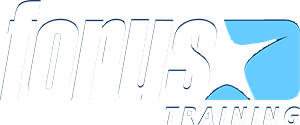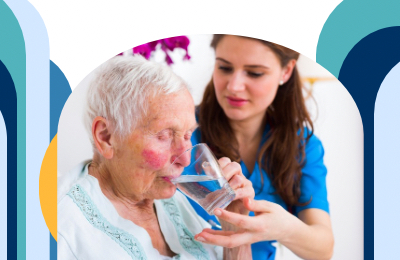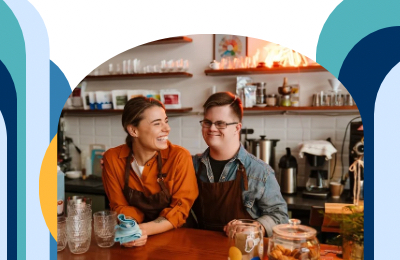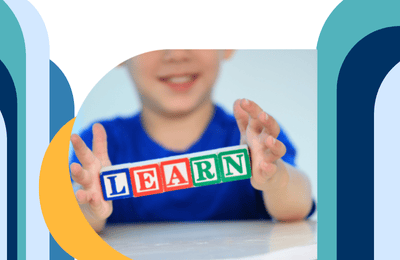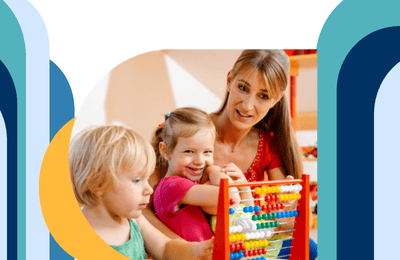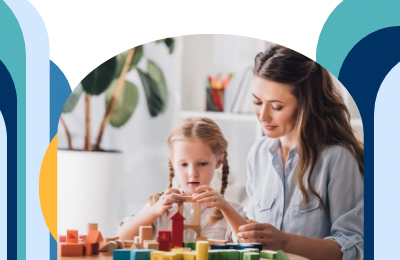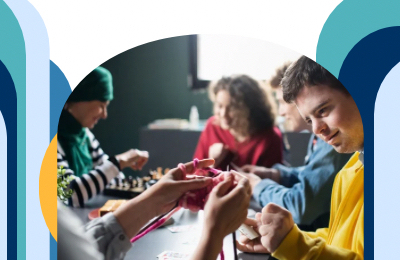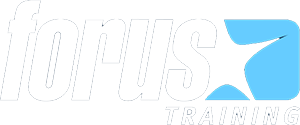Explore a Career in Early Learning & Care with Forus Training
As May blooms around us — bringing longer days, warmer light, and a sense of renewal — it’s the perfect moment to consider a fresh start. If you’ve ever dreamed of taking your work with children further, making a more meaningful impact, or pursuing a purpose-driven career, now is your time to explore and upskill in the world of Early Learning and Care.
Start Small, Dream Big
Curious about expanding and upskilling your career in Early Years and would like to know what training with Forus Training is like?
Introducing Our Brand-New Online Taster Programme – Launching May 6th!
Forus Training’s Level 6 Early Learning & Care Taster Programme gives you the flexibility to dip your toe in first — with no pressure. Come and see what we are all about!
You’ll start by enrolling in just two key modules before committing to a full Major Award programme and gain valuable insights and skills. If it’s a good fit and you enjoy training with Forus Training, you can continue your learning journey and complete the full award at your own pace.
Your Starting Point:
Sociology and Social Policy in Early Learning and Care (6C21518). This module explores the dynamic relationship between society, policy, and early childhood. Learners will examine how social structures, cultural norms, inequality, and public policy shape the lives of children and families in Ireland today.
By understanding key sociological theories and social policy developments, learners are empowered to reflect on their own role in fostering equity and inclusion in Early Learning and Care (ELC) settings.
What You Will Learn:
- Key concepts in sociology relevant to childhood, family, gender, class, and culture
- How social inequality impacts child development and learning outcomes
- The evolution and impact of Irish and international social policy on ELC
- Critical reflection on current practices, diversity, and inclusive care
- Strategies for supporting children and families affected by social disadvantage
Learning Outcomes:
By the end of this module, learners will be able to:
- Apply sociological concepts to real-life early years settings
- Critically assess social policy and its impact on children, families, and practitioners
- Advocate for equality, inclusion, and child rights within ELC environments
- Demonstrate awareness of cultural competence and anti-bias approaches
Ideal For:
Aspiring or practicing early years educators who want to deepen their understanding of the social contexts that shape early childhood. This module is particularly valuable for those committed to inclusive, reflective, and rights-based practice.
Your next module: Curriculum and Pedagogy (6C21520). This module explores how curriculum and pedagogy shape meaningful learning experiences for young children in Early Learning and Care (ELC) settings. Learners will engage with key frameworks such as Aistear and Síolta, as well as contemporary theories of learning and development, to support the design and delivery of child-centred, inclusive, and reflective educational practice.
What You Will Learn:
- Core principles of curriculum and pedagogy in ELC
- How to implement the Aistear curriculum framework in daily practice
- The role of the educator as a facilitator of play, exploration, and learning
- Ways to create inclusive, emergent, and a culturally responsive curriculum
- How observation, assessment, and planning inform quality provision
Learning Outcomes:
By the end of this module, learners will be able to:
- Analyse the impact of curriculum and pedagogy on children’s development
- Plan and evaluate curriculum experiences that reflect children’s interests, needs, and backgrounds
- Demonstrate a deep understanding of Aistear’s four themes and their practical application
- Reflect on their own pedagogical style and commitment to child-led learning
Ideal For:
Early years educators who want to strengthen their curriculum design and teaching practice with a strong grounding in theory, national frameworks, and reflective methods. This module is key to delivering quality, engaging, and inclusive education in early years settings.
Once you’re ready to continue, complete your Major Award with four additional modules:
- Advanced Professional Practice Placement in Early Learning and Care (6C21517)
- Supervision and Administration Skills In ELC (6C21522)
- The Developing Child (6C21519)
- Inclusive Early Learning and Care (6C21521)
These modules allow you to continue your learning journey with Forus Training and gain hands-on experience in a real ELC setting, while applying advanced knowledge of curriculum, inclusion, and child development. The placement supports reflective practice and professional growth.
Upskilling is essential in today’s fast moving world of early childhood education. Be part of the new leaders in the sector by learning key leadership, management, and administrative skills for running or supporting the operation of an ELC service.
Further your studies and knowledge with up to date theories and explore the complex and holistic development of children from birth to six years, including physical, cognitive, emotional, and social growth. Understand the theories and factors that shape each child’s journey.
And finally, develop the knowledge and tools to create inclusive environments that value diversity and support children with additional needs. Emphasizing on equity, access, and rights-based practice in ELC.
Early Learning and Care Training: Grounded in Irish Legislation and Best Practice
If you’re considering a career in Early Learning and Care (ELC), it’s essential to choose a course that not only equips you with practical skills but also aligns with Ireland’s current legislation and best practice frameworks. Forus Training’s Level 6 Early Learning and Care course is designed to do just that—ensuring learners are prepared, confident, and fully compliant with the standards expected in professional ELC settings.
Meeting Legal Requirements in ELC
Child protection, inclusion, and equal access are cornerstones of modern early years education—and the legal frameworks guiding these are embedded throughout this course. Learners engage directly with key legislation including:
- Children First Act 2015 and Children First National Guidance (2017)
These documents shape the foundation of child safeguarding practices. As part of their training, learners gain a full understanding of reporting responsibilities, identifying signs of abuse or neglect, and the role of the Designated Liaison Person (DLP) in an ELC setting.
- Child Care Act 1991 (as amended)
Learners explore how this foundational act protects the welfare of children, ensuring that all ELC professionals are aware of their duty of care and responsibilities in supporting children’s holistic development.
- Equal Status Acts 2000–2012
A strong focus on equality and diversity ensures students are trained to create welcoming, inclusive spaces that respect every child’s identity and background.
- EPSEN Act 2004 (Education for Persons with Special Educational Needs)
Inclusion is more than a principle—it’s a right. Learners study how to adapt practices and environments to meet the individual needs of children with additional educational needs.
Built Around National ELC Frameworks
The course curriculum is informed by the two major quality and curriculum frameworks in Ireland:
- Aistear: The Early Childhood Curriculum Framework
Aistear guides learners in designing and implementing play-based, child-led experiences. The course ensures graduates understand how to support each of Aistear’s four themes—Well-being, Identity and Belonging, Communicating, and Exploring and Thinking—in daily practice.
- Síolta: The National Quality Framework
Síolta’s 16 standards are woven throughout the modules, with specific focus on areas such as Professional Practice, Play, Interactions, and Identity and Belonging. This approach ensures learners are equipped to promote high-quality learning environments.
Supporting Inclusive and Equitable Practice
In line with Ireland’s commitment to diversity and inclusion, the course also reflects:
- The Access and Inclusion Model (AIM)
Learners study how to support children with additional needs through targeted strategies, understanding how to create fully participatory environments.
- The Diversity, Equality and Inclusion Charter
This national Charter is a key part of the course, ensuring students are grounded in practices that promote fairness, respect, and the celebration of difference.
Why This Matters for Your Career
Choosing a course that aligns with Ireland’s legal and professional frameworks not only ensures you’re workplace ready—it positions you as an advocate for quality early years education. Whether your goal is to open your own setting, become a room leader, or simply make a difference in the lives of children, you’ll leave this course with the confidence that your practice is evidence-based, ethical, and inclusive.
Fully Aligned with QQI Accreditation
The Early Learning and Care (ELC) Level 6 course with Forus Training is fully aligned with Quality and Qualifications Ireland (QQI) standards. QQI is the national body responsible for quality assurance in further and higher education in Ireland. This means:
- National Recognition – The qualification you receive is part of the National Framework of Qualifications (NFQ), specifically at Level 6, ensuring it’s respected and recognised across the country and by employers in the early years sector.
- Workplace Ready Skills – The QQI modules are designed to develop both theoretical knowledge and practical competencies, giving learners the confidence to deliver quality care and education in real-world settings.
- Pathways for Progression – As a QQI-accredited course, it also opens up pathways for further study in early childhood education or related fields, including progression to third-level education.
- Compliance with Tusla Requirements – Tusla, the Child and Family Agency, requires ELC practitioners to hold relevant QQI qualifications. This course ensures you meet those criteria, preparing you for roles such as Early Years Educator, Preschool Leader, or Room Supervisor.
Your learning is in trusted hands, come and see what Forus Training is all about!
Train with a QQI-validated provider and make your next step count toward a rewarding, qualified career in Early Learning and Care.
